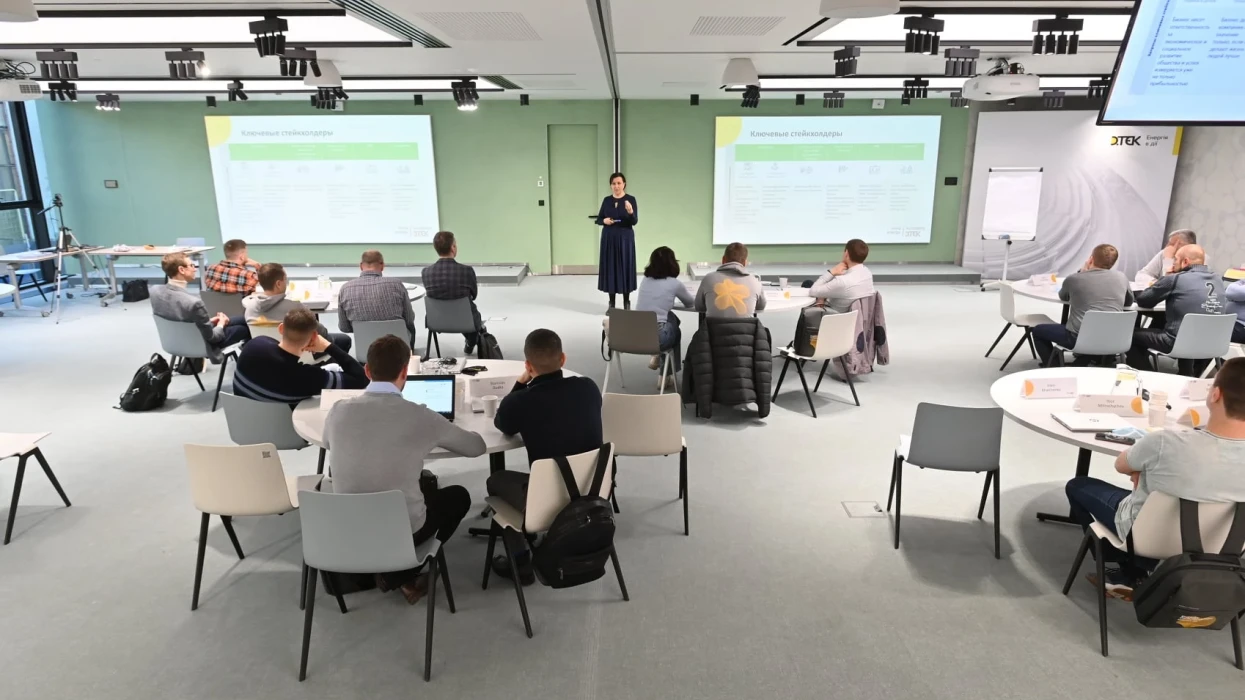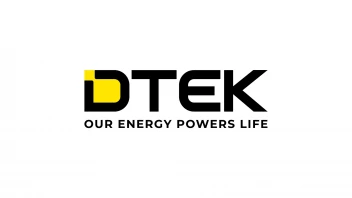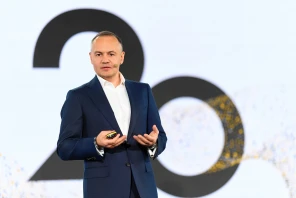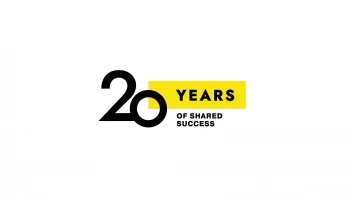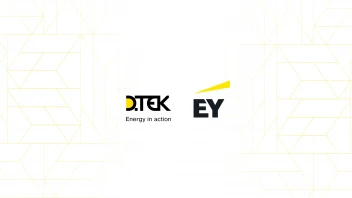Brand and reputation: what is common and what is the difference? How to manage a corporate brand and recognize your target audience in a quality manner? Why is employee information hygiene needed? And why are anti-crisis communications directly related to business challenges and decisions?
The 8th module of the Academy DTEK flagship program "Energy of Innovation: Executive MBA" is aimed at socio-political interactions, people and HR management and began with Olga Zakharova, Director of Corporate Communications DTEK.
.jpg)
With Olga we talked in more detail about the specifics of PR in a corporate format and the effectiveness of communication, how design thinking in a brand and reputation management can help in achieving strategic decisions of the company! Oksana Moroz, author of the book “A nation of vegetables? How information changes the thinking and behavior of Ukrainians” shared with the participants her views on fakes and information hygiene of employees, why fakes in heads of people are losses for the company and how information viruses modify the thinking and behavior of Ukrainians. The practical case on how
reputational crises affect business, shared Diana Kladova, Head of the Communications Department at DTEK Grids.
A few main thoughts:
- A business reputation begins with the structure of the company.
- The reputation cannot be better than the company itself.
- "Unresolved" reputation problems do not disappear and do not have a limitation period.
From the part of PR and communications, we moved to GR, lobbying and advocacy, because lobbying in developed countries is a tool for cooperation and communication, which leads to the adoption of progressive decisions beneficial to business, including society as a whole. It has a real chance of influencing the reduction of corruption, because the issue can be resolved cheaper, more quickly and legally.
With Denis Bazilevich, a consultant and trainer for lobbying and advocacy, we spoke:
- on the practice of advocacy and lobbying as a tool to influence regulatory policy and GR,
- on how to interact with the authorities for quality influence on public policy,
- what are the main subjects and objects of interaction with the authorities, lobbying and advocacy,
- what is the formula for successful GR, working with stakeholders and how interaction with government agencies can provide business support.
The third block of the 8th module dealt with HR and People management. Overall, the HR field seems to be relatively new. But the American scientist Garrington Emerson back in 1912 in his book "The Twelve Principles of Efficiency" wrote about "the necessity of existence in every organization that wants to be successful, a special person with intuition, observation and understanding of others ...". The corresponding term did not exist yet, but the meaning of the statement is beyond doubt - this is the future HR! But what are the current global changes in the world and the role of HR in it? How can leaders prepare for the new reality and are we ready to be the employers of the future?
Olga Gorbanovska, partner, director of People Advisory Service EY Ukraine, started part on people management with such large-scale questions and challenges. COVID-19 really became a catalyst and driver of rapid changes in the markets, but above all, it changed us, our perception of the world, globalization, home and, no less important, work! “In the new realities, a new business task is to show its human face through care about the employee, because the crisis will end, but people will remain the key force of any business. Here and now, businesses are focused on preserving their fixed capital - people”- says the director of DTEK BV, Alexander Kucherenko. Alexander focused on corporate culture as a key factor in the development of an organization and how HR affects the company's business performance.
Thus, new conditions dictate new approaches and concepts of training, as well as a new look at talent management. The rector of Academy DTEK Valeria Zabolotnaya shared with the participants her thoughts on the future of talent management and noted that now the business trend is the acceleration of digital transformation. Anna Dobrynets, HRD Imperial Tobacco, presented the company's practical experience for a broader and deeper understanding of the context. Why transparent communication is a fundamental component in building employee trust and how "correct" communication affects the fullness of the meanings of teams.
About modern HRM and how it can help businesses achieve strategic goals in theory and practice we talked with Evgeniy Bondarenko, HR Director of Media Group Ukraine, author of the first course for managers in Ukraine on people analytics. With Eugene, the participants created an employee experience map for solving business problems. Indeed, for the organization, its internal client - an employee - acquires no less importance than an external client and it becomes important which path he goes through and the experience he gets while working in the company.
The emotional point of completion of the module was a speech by Anatoliy Neyolov, the founder and artistic director of the Black Square Theater, on the art of improvisation. Because in business, like in theater, you can only improvise when you perfectly know your role.
"Energy of Innovation" is a practical EMBA-program at the management level of Academy DTEK. More about the program - https://emba.academydtek.com/



